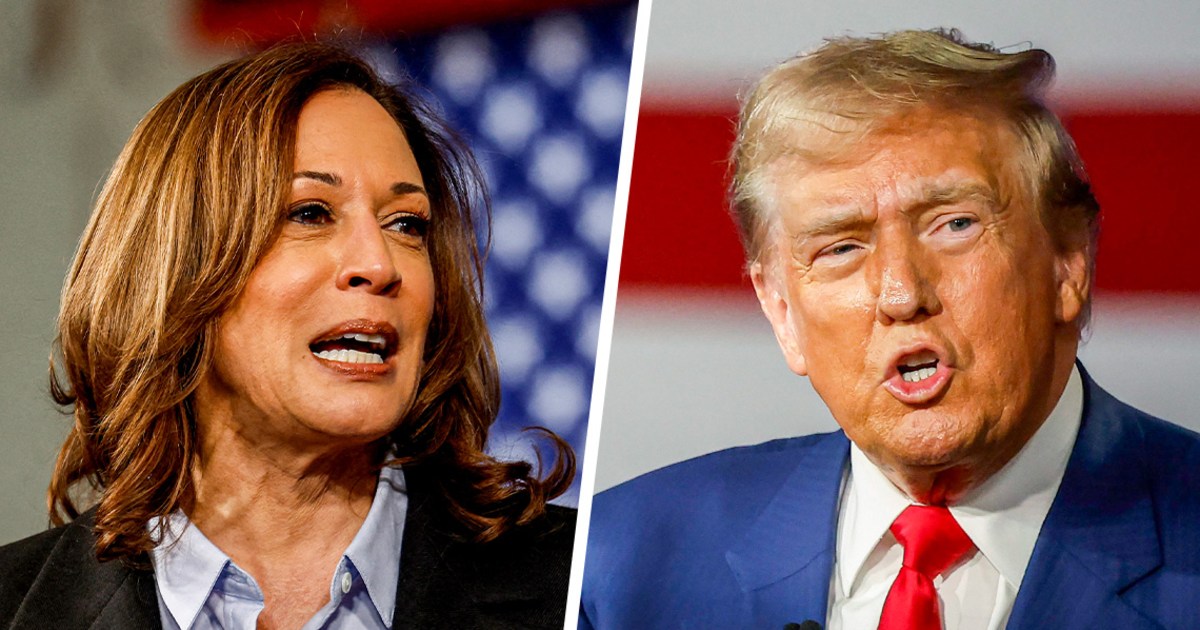As recently as a week ago, it appeared quite likely that Vice President Kamala Harris and Donald Trump would share a debate stage on Sept. 10. There was just one lingering sticking point that the campaigns needed to work out: Would the candidates’ microphones remain on throughout the event, or only when they’re speaking in response to a question?
In the modern era, presidential debate participants had their microphones on throughout the events, and Harris’ campaign team wanted to keep it this way. But Team Trump insisted otherwise, and there was no great mystery as to why.
As a recent NBC News report explained, “Inside the Harris campaign, the thinking is that there shouldn’t be guardrails, and that viewers should see a full, unbridled Trump. Officials there argue that Trump’s handlers don’t trust their own candidate and charge that for all the talk of Biden showing cognitive decline, it’s Trump who is struggling to stay on track with his arguments. Showing him unleashed only benefits Harris.”
So, with time running out, would Team Harris get its way? Evidently not. NBC News reported:
Vice President Kamala Harris and former President Donald Trump are set to debate each other next week for the first time after their campaigns on Wednesday agreed to the ground rules set by host network ABC. The Sept. 10 event in Philadelphia will use the same rules and format as the June debate between Trump and President Joe Biden.
Under the newly agreed-upon rules, Trump’s and Harris’ microphones will be live only for the candidate whose turn it is to speak, which is the opposite of what Democrats were hoping for.
The Harris campaign explained to ABC News in a letter that the vice president “will be fundamentally disadvantaged by this format.”
“Notwithstanding our concerns, we understand that Donald Trump is a risk to skip the debate altogether, as he has threatened to do previously, if we do not accede to his preferred format,” the letter added. “We do not want to jeopardize the debate. For this reason, we accepted the full set of rules proposed by ABC, including muted microphones.”
So, the former president, who repeatedly went back and forth on whether he’d show up for next week’s debate, must be delighted to be getting his way, right? Wrong. As The New York Times reported, the Republican nominee is still whining anyway.
Hours after the Trump and Harris campaigns agreed to rules for their first presidential debate, former President Donald J. Trump sought to instill doubt that the debate would be fair, downplayed his need to prepare and suggested he was more worried about the network hosting the debate than his opponent.
As part of his latest event with Fox News’ Sean Hannity, the GOP candidate claimed anew that ABC News is “dishonest,” adding that he fears the network will give Harris “the questions in advance.”
All of this was quite bonkers, of course, but it was not unexpected.
As we discussed a few months ago, Trump is defined in large part by a belief in preemptive delegitimization. Fearing possible election defeats, the Republican has consistently taken steps to delegitimize the process to explain away potential losses. Fearing possible legal setbacks, he’s also repeatedly tried to delegitimize the justice system to validate potential adverse outcomes.
For whatever reason, Trump approaches practically every challenge with the same thought: “If I fail, it can’t be my fault.”
The GOP nominee has approached debates the same way, even making pre-emptive excuses for possible failure ahead of his recent debate with President Joe Biden.
Given this recent history, it would’ve been more surprising if Trump didn’t try to pre-emptively delegitimize next week’s debate with Harris.
This post updates our related earlier coverage.


Leave a Reply